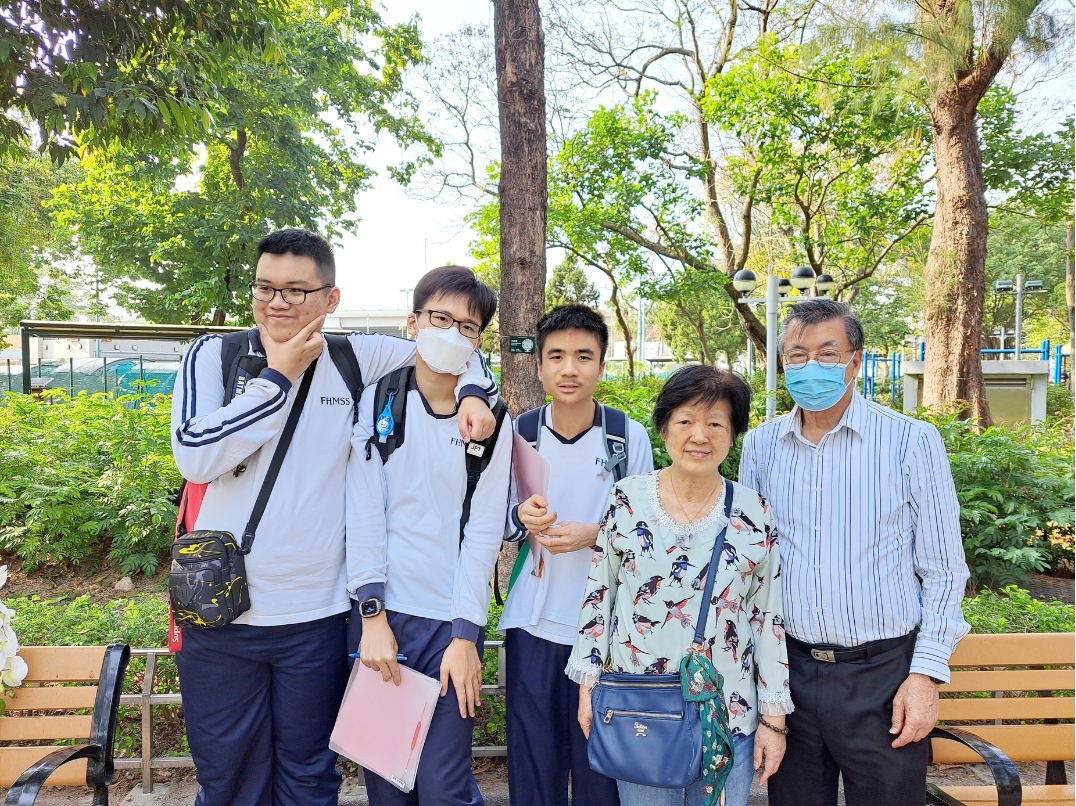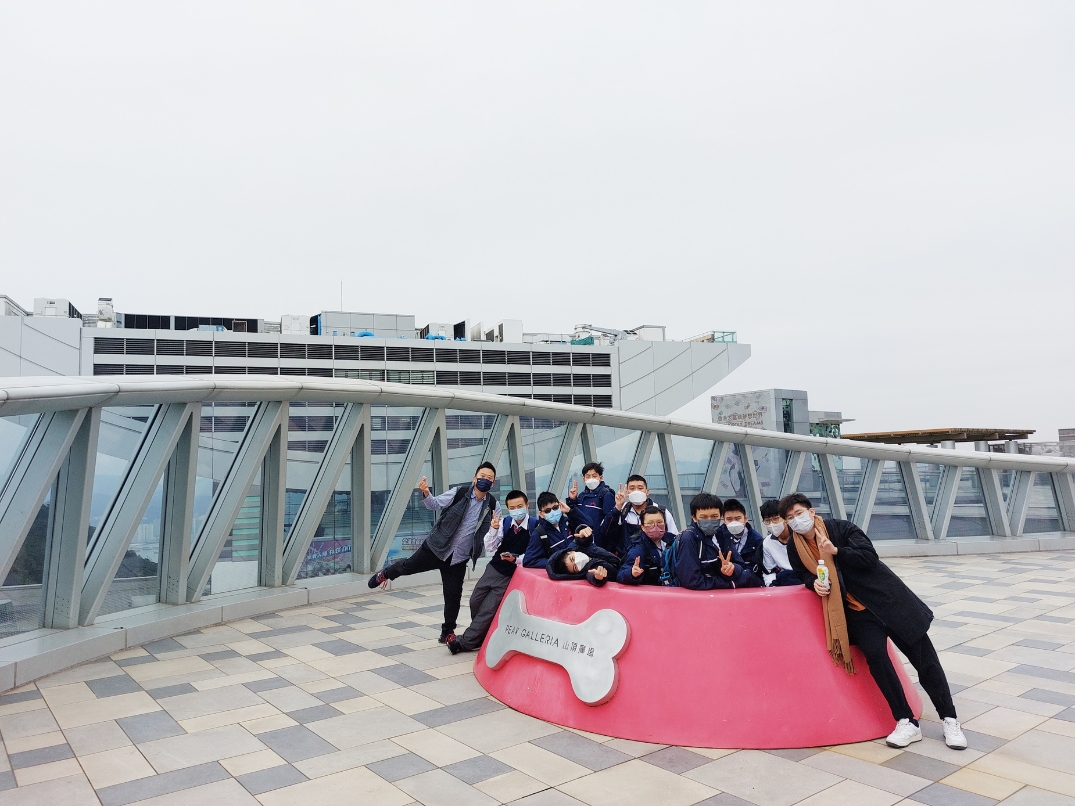Experiential Service Learning Helps SEN Students Master Knowledge and Skills
Fortress Hill Methodist Secondary School has implemented experiential service learning to help students with special educational needs (SEN) adapt to the rapidly changing social environment. This approach allows students to serve those in need in society with what they have learnt, while also gaining personal experience and practising their skills. Through this process, students can further master various knowledge and skills; thereby, enhancing their learning effectiveness.
Ms Hau Kit Ying, the Assistant Principal, stated that since the majority of the school's SEN students face severe learning difficulties, traditional teaching through listening, speaking, reading, and writing has limited help for these students to acquire knowledge. In this light, the school has adopted the experiential service learning to not only help those in need but also improve students' learning motivation and engagement. By engaging in service activities, students can repeatedly apply various knowledge and skills to achieve a deeper understanding and pragmatic application.
Ms Hau added that cultivating empathy in students is a crucial first step in encouraging them to help others. However, simply explaining the needs of the service targets may not be enough for students to grasp the actual situation at once. Therefore, teachers will use a multi-pronged approach to help students understand the difficulties of others, including simulations of different scenarios, asking the students to carry heavy objects to understand the challenges of mobility difficulties, or visiting subdivided flats to experience the living difficulties of people with low-income backgrounds.

Teachers will then guide students to analyse the needs of the service targets in ways that meet their learning needs, such as expressing their ideas through words, video, or drawing. By helping students truly understand the service targets and the difficulties they face, they will learn to empathise and provide assistance from the targets’ perspective.
Enabling Students to Grasp the Pulse of Society
Ms Hau claimed teachers will match the design of experiential service learning with the existing qualification framework curriculum of the school as much as possible. This enables students to apply what they have learnt in class to service learning and gain practical experience. As a result, SEN students can plan and develop their long-term careers with greater confidence and competence.
Ms Chow Po Sum, Head of Student Admission and External Liaison Committee, gave an example of the ‘Inter-generational Ambassadors – Geron & Elderly Care New Force’ programme at the school. This programme allows junior students to learn elderly care skills through in-school training and service learning, laying a strong foundation for their future development. ‘When students are promoted to senior forms, they may enrol in the upcoming course in the Certificate in Elderly Care Assistant (Communication Skills with Elderies) (QF Level 2), and apply the knowledge and experience they gained in junior forms,’ she explained.
Ms Chow further explained that the school is committed to integrating various Qualification Framework courses, allowing students to integrate knowledge and skills across different areas. For instance, in the catering course, the school introduces students to the principles of soft food for the elderly, so as to help students understand how to prepare meals that meet the unique dietary needs of the elderly. Similarly, the home maintenance course incorporates knowledge and skills related to elderly home repairs.
She added, ‘Gerontech is one of our teaching focuses, in which our school has a classroom dedicated for students to learn how to use technology for elderly care. In fact, we allow students to use the technology to serve the elderly, including measuring vital signs such as blood pressure and pulse.’By providing students with systematic professional training and practical experience, the school can effectively prepare students for future careers.
Ms Chow noted that the school is currently working closely with the Hong Kong Council of Social Service to offer students internship opportunities at the gerontech cleaning and maintenance service centre under the organisation. Given that the students already possess relevant knowledge and experience, they are well-equipped to perform well on the job and are highly valued by employers. This highlights the significant benefits that come from coordinating traditional learning with service learning, both in terms of students' academic development and their future career prospects.

Teaching and Administrative Planning Must Be Done Carefully
Ms Hau stresses the importance of thorough planning and follow-up work in promoting experiential service learning for SEN students. It is crucial that teachers have a deep understanding of the unique challenges that these students face, such as difficulties with communication, problem-solving, and their tendency to become emotionally unstable when faced with stressful situations. To address these challenges, teachers can collaborate with speech therapists and social workers to develop training programmes that provide students with the support they need. This may involve workshops, role-playing exercises, and repeated practice to help students build their confidence and develop the skills they need.
‘Whenever the service targets are the elderly, we will teach students the necessary communication skills, such as being patient and slowing down their speech when conversing with the elderly,’ Ms Hau stated. ‘In addition to this, we will let students learn how to handle unexpected situations, for instance, when they are unable to find a topic to talk about with the elderly or when they need to manage their own emotions.’
Ms Hau highlighted the importance of aligning the content of experiential service learning with the interests and strengths of the students. By starting from a place of genuine interest, students are more likely to be engaged in the learning process, leading to more satisfactory outcomes for both the service and the learning aspects. To illustrate this point, Ms Hau cited the example of the school's Transport Ambassadors programme, which was designed to cater to students' love of transportation. The programme was expanded to include elements of elderly care, with students designing travel routes for the elderly and accompanying the elderly on their journeys. During the planning process, the students were enthusiastic and willing to repeatedly try and modify their plans, and they thoroughly enjoyed the final outcome. This programme embodied inter-generational integration and resulted in inspiring outcomes.
Fostering Confidence and Self-understanding in Students
Ms Hau highlighted that experiential service learning has had a positive impact on students, with feedback indicating that they have becomemore confident and gained a deeper understanding of their own strengths and weaknesses. Teachers have observed this transformation through interviews and observation.
‘We conducted a survey,’ Ms Hau explained, ‘and the results showed that more than 80% of students felt more confident and are more likely to express their thoughts and feelings than before. Moreover, students are more willing to participate in various activities, overcome psychological barriers, and even share their experiences in front of the camera. These are all things that we, as teachers, are delighted to see.’
Ms Hau went on to emphasise that the school will continue to provide opportunities for students to showcase their talents through experiential service learning. By doing so, the public can gain a better understanding of the abilities of SEN students and the importance of social inclusion.
‘What SEN students need is our willingness to be their companion along the way, the discovery of their strengths, and then the provision of appropriate training and support,’ said Ms Hau. ‘In this way, they can equip themselves to face their future.’
